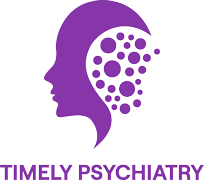Post-traumatic Stress Disorder (PTSD) is a mental health condition triggered by experiencing or witnessing a traumatic event.
PTSD can increase life’s difficulties
PTSD changes our thought patterns, emotions, and actions. In this piece, we’ll talk about what PTSD is exactly. We’ll learn about its signs, and see what dictates its duration.
What is PTSD?
Experiencing Trauma
Many things can cause trauma. Accidents, natural disasters, military fights, and personal attacks are all included. It’s usual to be shocked after these scary events. But, if the symptoms don’t go away and start messing with everyday life, it might be PTSD.
Distinctive Symptoms
TSD is characterized by distressing symptoms that are grouped into four main categories:
1. Intrusion
Flashbacks or reliving the trauma
Repeated, involuntary memories
Nightmares
Intense distress at reminders of the trauma
2. Avoidance
Avoidance means avoiding anything related to thinking about what happened, which includes people and any discussions related to it
Avoidance is also an aspect of PTSD that makes one avoid certain areas, activities, and even individuals reminding them of the tragic incident they experienced
3. Negative alterations in cognition and mood
- Having trouble recalling important details of the tough event
- Thinking negatively about yourself, others, or the world
- Continuous feelings of fear, horror, anger, guilt, or shame
- Decreased interest in activities
- Feeling disconnected from others
4. Alterations in arousal and reactivity
- Bursts of great anger or aggression
- Being over cautious always
- Exaggerated startle response
- Problems with concentration
- Sleep disturbance
How Long Does PTSD Last?
Exactly, how long does PTSD last?
The duration of PTSD varies considerably from one person to another. For some people there is usually a gradual reduction after just a few months but for others it may continue for many years either with consistent severity or alternatively waxing and waning before ultimately resolving completely eventually ending permanent disability if treated quickly.
Acute vs. Chronic PTSD
Acute PTSD usually sticks around for at least a month but less than three to six months, while chronic PTSD means dealing with symptoms for six months or longer.
Factors Affecting PTSD Duration
Some factors can influence the period it takes for one to recover from PTSD:
Personal Factors
- Whether or not they have had previous exposure to trauma
- Existing mental health conditions
- Lack of social support
- Continued life stressors
The Nature of the Trauma
- The intensity of the event
- Personal injury or loss
- Duration of trauma exposure
- Proximity to trauma
Recovery Process
- Timeliness of treatment
- Type of treatment
- Individual response to intervention
Will PTSD Ever Go Away?
PTSD doesn’t just vanish completely for everyone, but it can get a lot better with treatment and time. Therapy, medication, and support from loved ones can really help with managing symptoms and enhancing quality of life.
Treatment and Recovery
Professional Help
Early interventions are necessary. Mental healthcare providers can offer cognitive-behavioral therapies (CBTs), eye movement desensitization reprocessing (EMDRs) or medications.
Self-Help Strategies
- Support groups
- Mindfulness practices
- Regular exercise
- Healthy sleep habits
When to Seek Help
It’s important to look for help when you or someone you know has developed symptoms of Post-Traumatic Stress Disorders (PTSD).
It is important to consult a healthcare provider who will give you an appropriate diagnosis and treatment plan that suits your situation.
Timely Psychiatry: Your Ally in Overcoming PTSD
Timely Psychiatry is available to support and treat you or someone dear to you who is struggling with PTSD. Our caring experts understand the complexity of the disorder and are committed to assisting individuals on their journey towards recovery.
Contact Timely Psychiatry today, it’s the first step towards reclaiming peace and wellness in your life.
It’s never too early or too late to seek treatment; together we can walk through this path of healing from PTSD.
Timely Psychiatry values the journey of recovering and will be with you every step of the way.
Resources
- National Center for PTSD: Visit here for comprehensive information on PTSD symptoms, treatment options, and resources for people, families, and professionals.
- PTSD Foundation of America: Explore support groups, educational resources, and outreach programs at PTSD Foundation of America to find help and understanding.
FAQs
Does PTSD get worse with age?
For a few individuals, particularly if left untreated, PTSD symptoms change over time and may worsen during old age. However, many individuals have found that their symptoms lessen with time when they receive appropriate attention and support.
How long does PTSD last?
The extent of someone’s suffering from PTSD can greatly differ from person to person. For some people it could be only for a few months while others may continue experiencing it for several years.
The search for professional help as well as active engagement in therapy can help alleviate these forms of trauma thereby making them shorter lived than they initially were which subsequently results to an improved wellbeing overall.
When is PTSD Awareness Month?
June has been designated as Post Traumatic Stress Disorder (PTSD) awareness month. It was set aside to increase knowledge about post-traumatic stress disorder, its aftermaths and ways whereby its victims can receive assistance.

